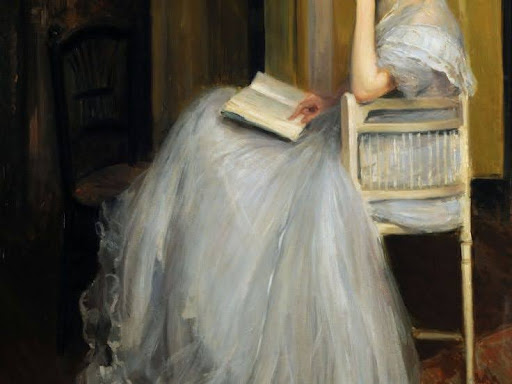Why is Classic literature still relevant today?

Nowadays, we have 1000 romance novels reinstating the same friends-to-lovers trope: where the main characters realise after years of being best friends, that they are actually in love with each other. Not that I am in any way disrespecting modern romances – I’m a sucker for anything cliché – but classics are called classics for a reason, no?
Why, after so many years, can no one compare to Jane Austen’s unforgettable Mr. Darcy? Why can no writer match the innocence and the wholesomeness of Louisa May Alcott’s ‘Little Women’? Many people all around the world still crave a good old classic novel. People who don’t even speak English as their first language are still eager to read these iconic novels and dive into the world of our historic authors.
The word ‘classic’ seems to imply something of lasting worth or with a timeless quality. Now, what is the difference between ‘classical literature’ and ‘classic literature’? Is it actually the same, or are they different?
Classical literature refers to the great works of ancient civilizations, mainly those of ancient Greece and Rome. Famous classical literature includes the works of Homer, Sophocles, and Marcus Aurelius. On the other hand, classic literature cites a much wider range of works than that of classical literature. These books have significance as well as relevance, even in generations following the book’s publication. Some well-known ‘classic’ authors include Jane Austen, Virginia Woolf, and Fyodor Dostoevsky.
So, what is it about classic literature that makes it significant not only for contemporary readers upon the book’s publication but also for future generations? Classic literature themes are universal and ageless. It has the enduring ability to capture timeless themes such as love, betrayal, ambition, and the human condition. Cue Shakespeare patting himself on his back in his grave…
Speaking of Shakespeare, the drama bard himself, his literary works explore what it means to be human, the human experience, and the human psyche. The whole spectrum of human emotions is explored vividly and powerfully throughout his works.
Classic literature serves as a form of escapism, transporting readers to distant worlds and time periods, while also offering insights into the readers’ own lives and experiences. Readers are able to explore places outside the confines of their reality, traversing through fantastical as well as historical lands and settings. Amidst these wonderous adventures, classic literature reflects the complexities of human nature and the universal truths that bind us all.
In classic literature, we get to explore the psychological depth of characters in classic literature, and how their struggles and triumphs reflect universal aspects of the human experience, as well as relate to their feelings, struggles, and experiences. From the tormented soul of Hamlet to the mysterious depths of Dorian Gray, these characters are not mere figments of imagination, but embodiments of the multifaceted nature of humanity itself. While the characters and stories provide entertainment and escapism, they also stand as mirrors, reflecting the array of human emotions.
Moreover, classic literature plays a huge role in shaping societal values, attitudes, and perceptions, and how these themes continue to resonate with readers today. It helps readers explore and enforce personal development and self-discovery, and encountering these texts can help shape one’s worldview and identity. A great impact of classic literature is fostering empathy and understanding, by allowing readers to inhabit the perspectives of characters from different backgrounds and experiences.
Classic literature serves as a basis for inspiration – inspiring the creation of many modern works and re-makes today. Many modern stories and movies are actually reworks of stories surfacing from classic literature. Think of how Disney’s ‘The Lion King’ was a rendition of Shakespeare’s ‘Hamlet’. Or how Jane Austen’s ‘Emma’ was loosely interpreted into Amy Heckerling’s famous ‘Clueless’.
Classic literature helps us preserve language and cultural heritage and continues to be studied and celebrated across generations. It serves as a window into different cultures, time periods, and historical contexts, providing readers with valuable insights into the past. By helping us figure out where we came from, and how we have evolved as humans, classics help us to keep a direct connection to the past.
Classic literature also plays a huge role in the educational sector today (thank goodness!). When teachers teach classic books in school, they are reinforcing what kind of books and writing are valuable. The educational value of studying classics at school or university can foster critical thinking by analyzing characters and their actions and engaging with the text on a deeper level. Studying classical literature at school helps students develop empathy and promote the perception of new perspectives at a young age, by immersing themselves in the pieces. According to studies, engaging with challenging literary texts stimulates cognitive processes such as memory, attention, and problem-solving. Studying classic literature exercises the brain and fosters intellectual growth, contributing to overall cognitive development.
Classic literature is more than just stories; these are timeless treasures that continue to move, inspire, and influence in the present day. As long as there are hearts to feel, minds to ponder, and souls to seek enlightenment, the allure of classic literature will continue to endure, inspiring generations to come.
“A classic is a book that has never finished saying what it has to say.”
― Italo Calvino, The Uses of Literature: Essays



